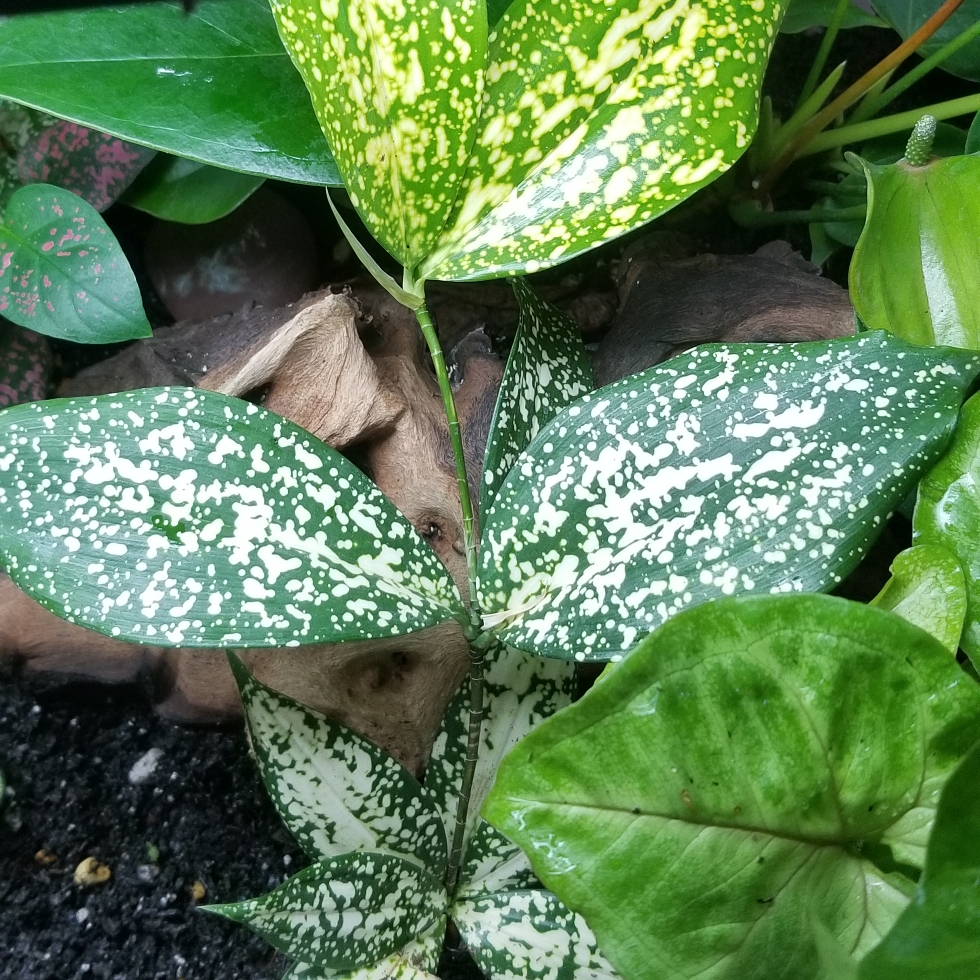
Dracaena godseffiana syn. D. surculosa 'Florida Beauty'
Gold Dust Dracaena
There are about 120 species of trees and succulent shrubs which belong to the genus. The larger species are commonly known as Dragon Trees and the remaining species are known collectively as shrubby dracaenas. They are smaller and shrub-like, with slender stems and flexible strap-shaped leaves. Dracaena plants are suitable for use as houseplants. 'Florida Beauty' has large, bold leaves with bright green foliage and contrasting yellow speckles. As the plant matures, the speckles lighten, becoming white.
-
Full sun to partial shade
-
Very little water
-
A little frost hardy: 32F (0°C)
-
Moist and free draining
Common name
Gold Dust Dracaena
Latin name
Dracaena godseffiana syn. D. surculosa 'Florida Beauty'
type
Perennial
family
Asparagaceae
ph
5.0 - 7.5 Acid - Neutral
Plant & bloom calendar
-
Best time to plant
full grown dimensions
 1.00 M
3.00 M
1.00 M
3.00 M
Dracaena godseffiana syn. D. surculosa 'Florida Beauty'
There are about 120 species of trees and succulent shrubs which belong to the genus. The larger species are commonly known as Dragon Trees and the remaining species are known collectively as shrubby dracaenas. They are smaller and shrub-like, with slender stems and flexible strap-shaped leaves. Dracaena plants are suitable for use as houseplants. 'Florida Beauty' has large, bold leaves with bright green foliage and contrasting yellow speckles. As the plant matures, the speckles lighten, becoming white.
Planting as a houseplant
From Early Spring TO Early Spring
Most well draining potting soil mix types are fine to use. Temperatures from 60°F (15°C) - 75°F (24°C) are ideal. Under 55°F/12°C is going to harm the plant which may become noticeable if the leaves begin curling. Try and avoid the plant being near cold drafts, which will also cause harm. A good mix of sun shine and shade is ideal for this dracaena, but hardly any direct sunlight. Although it grows quicker and better in bright light you'll also find it survives and grows well enough in low light conditions.
Propagation
From Early Spring TO Late Summer
These are quite easy to propagate from stem tip cuttings, best done in spring or summer. You can also cut a new or old rosette and re-plant it. After replanting keep the soil moist and mist the leaves which will encourage the plant to grow. A tall plant can be propagated using the air layering method.



























